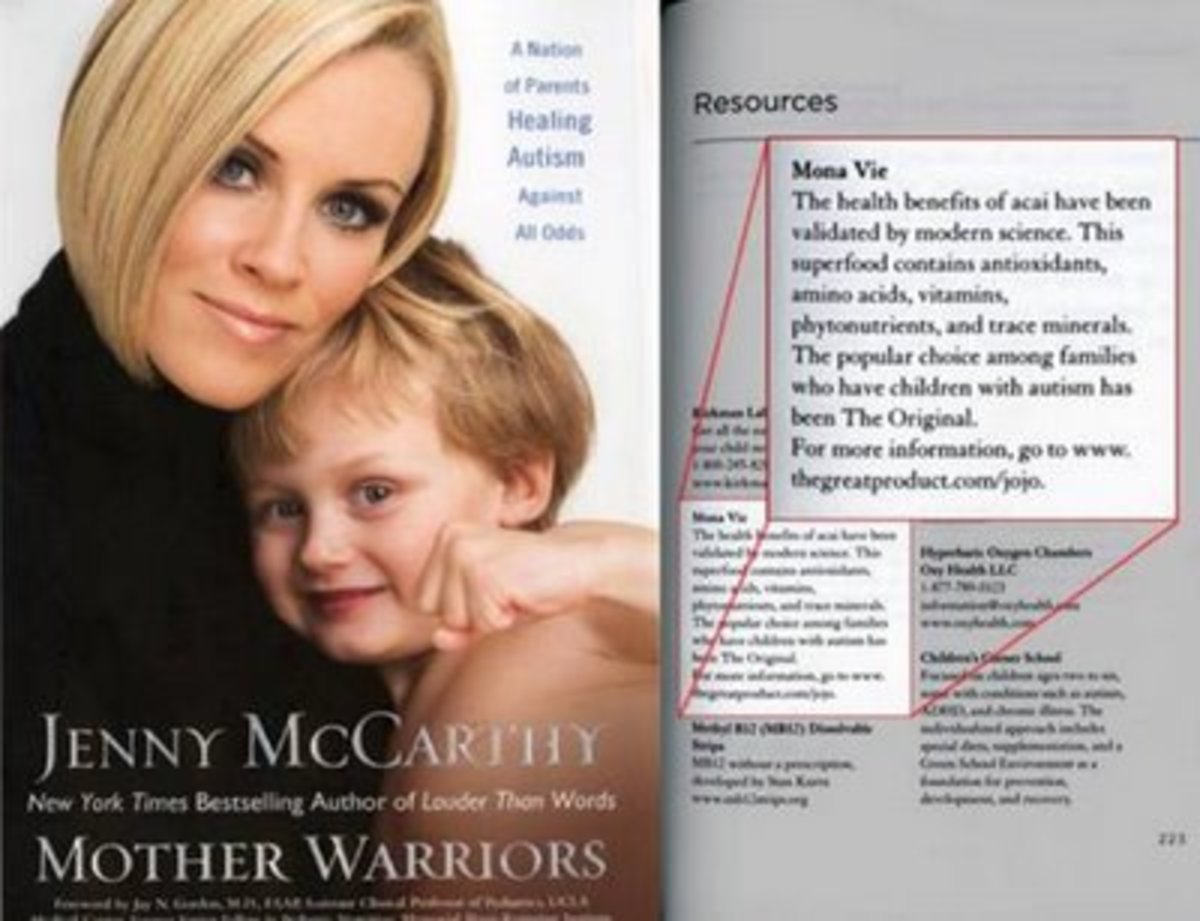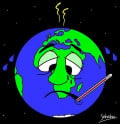Why Covid-19 Vaccination Is Necessary
In historical perspective, vaccines have been considered as weapons to fighting infectious and dangerous diseases such as polio, smallpox and yellow fever. However, there has been controversy in vaccination related with ethics, morality, safety and their effectiveness. Contrary to increasing public perception of vaccines as the main cause of various disorders such as autism, scientific evidence with regard to vaccinations indicates that there are many benefits derived from this measure. Prevention of death and suffering that arise from serious infectious diseases including covid-1 9 outweigh the negative consequences of immunization. Opponents of vaccinations have long argued that vaccines are ineffective, dangerous and a violation of religious ethics or individual rights. These perceptions and arguments had made some people and communities neglecting the use of vaccination even at this time when covid-19 is causing untold suffering. This has subsequently led to the increased outbreak of infectious diseases that would have otherwise been preventable. Nonetheless, as communicable diseases preventable by vaccines remain a current health problem, new health strategies are needed to ensure vaccination of the target population.
Benefits of Vaccinations
We have heard a long time saying that prevention is better than cure. Indeed, it is better to prevent a disorder as compared to treating it. It is because of vaccinations that one of the terrible disorders smallpox no longer exists in history. Throughout the years, vaccines have prevented numerous diseases and saved thousands of lives. Vaccine preventable diseases such as polio, pertussis, whooping cough and measles could be deadly if there were no vaccines. On the other hand, other vaccine preventable disorders may not be deadly, but could leave a person disabled or disfigured for life. Vaccine-preventable disorders are considered to be quite harmful. Each year, we hear of cases in the U.S where adults have died from vaccine preventable diseases.
Even if some people may be able to survive some of the diseases such as covid-19, it may leave them visually impaired once they are attacked. Women who are afflicted with measles within their early moments of pregnancy are at an increased risk of bearing with heart problems, blindness and other defects. Administration of vaccination before pregnancy is poised to prevent this.
Vaccines have for long proved to be effective in preventing diseases. It is strongly recommended that all people receive vaccination against covid-19. For instance, vaccines for Hepatitis HPV and hepatitis B reduce cancer risks caused by such virus. In the event that vaccination is stopped, there is a possibility that diseases that had diminished would reemerge. Epidemics of diseases that are today under control would be revived. This implies that there would be more children getting sick, as well as others dying.
Another concern for the necessity of vaccination is that though cases of vaccine preventable diseases have declined, some of these disorders are actually common in other nations and are brought to the U.S by migrants. If vaccination stopped, then it is possible for them to catch the diseases from migrants while travelling.
Vaccinations present an effective and critical way of preventing infectious diseases. It is also the most effective way of mortality and morbidity in decreasing infectious diseases including covid-19 in the global perspective. This presents the reason why many nations in the world have incorporated vaccination programs. As earlier pointed out, the elimination of smallpox in the world presents a most effective example on the essence of immunization. Many other diseases, which had been a cause for concern during the seventeen century, had been overcome through vaccination. Countries with inadequate measures of vaccinations and those with low rate of immunization have also high prevalence of vaccination preventable diseases occur.
Although some people may argue that there are associated risks in vaccination the serious reactions only occur in sporadic cases. Moreover, vaccination itself cannot be the cause of the diseases of which it is intended to prevent. On the other hand, children who are not vaccinated could be a source of contagious diseases for other children who may be sensitive when given an infection.
The bacteria and viruses that cause death and illnesses are still extant and could be passed on those who have not been immunized. In a moment when people travel in other parts of the world, it is very easy for contagious diseases to spread very fast. The Center for Disease Control and Prevention and other health care entities have recommended regular vaccinations to an individual throughout his or her life to prevent various infections. When one skips vaccines, he or she makes himself vulnerable to such ailments as influenza, pneumococcal diseases, shingles, hepatitis, B, HPV and other leading causes of cancer.
Vaccines can be compared to exercises and diet in maintaining the general health of an individual. In other words, they cannot be avoided. Just like taking healthy foods, regular check-ups, and exercises, vaccines play a critical role in ensuring that one is healthy. Moreover, vaccines offer the most safe and convenient means of preventing care possible.
Developed countries such as the U.S have the best surveillance mechanisms in ensuring that all vaccines are safe. Furthermore, a number of medical investigators also agree on the safety of these vaccines. Prior to being utilized by the users, all vaccines have to be duly tested and checked by relevant bodies and personnel. There is also no vaccine, which causes diseases. Most of these vaccines contain “dead” virus and it is not possible to obtain a disease from them. On the other hand, there are vaccines, which contain live, but weak viruses, which are designed to ensure that they do not cause a disease once in an individual’s body. Though children and the elderly are at greater risk for complications and serious risks, anyone can be struck by vaccine preventable disorders. For young and healthy individuals, being vaccinated is the best way of maintaining that health.
Vaccine preventable diseases may destabilize the social order and the normal life of an individual. For instance, a typical influenza illness may take more than two weeks to get cured with an average of five to six days of missed work. On the other hand, an attack by hepatitis B could make one lose more than one month in work. This is also the same case with children who may have to miss some school days or fail to do their responsibilities because of the vaccine preventable diseases.
Arguments against Vaccination
Despite the impeccable benefits of vaccinations, there are several counter arguments against vaccination and its effectiveness have risen in the last few years, which claim that vaccination is not effective and that it affects rather than protect the body from diseases. Some people in the US have a perception that vaccines are the main cause of other ailments such as autism. However, we have to ponder on what happens when parents refuse to immunize their kids against serious diseases such as rubella, mumps and measles. Indeed, there are some regions of the country where parents are avoiding immunization of their children, delaying some shots or skipping some of them altogether. Among the issues cited as some of the reasons for doing so includes: philosophical exemptions of state laws that require each child to be vaccinated before beginning schooling and religious principles. What is more? There are many parents in US who are convinced that vaccination is harmful to their kids (Though this aspect has no scientific basis). From their concerns, autism happens to be the main cause of worry for most of such parents. The perception is also related with the issue that at present, children now get twice the number of vaccines they used to get some twenty years ago. In addition, these children can receive more than 20 injections just in their first birthday. According to such parents, the increased vaccination and injections is among other factors to blame for increased rate of autism and other disorders for these children.
The strong public perception that vaccines do cause other disorders such as autism is fuelled by some unproved findings from some researchers. For instance, a gastroenterologist from Britain, Wakefield Rew presented in the Lancet, a study of 12 children, which related rubella, measles, mumps, and vaccine combinations with intestinal problems, which he believed, resulted into autism disorder. It was just the following year after the release of such results when the AAP conducted public awareness that most vaccines offered to children contained thimerosal, a mercury preservative. Though the warnings did not link the preservative to Autism directly, it claimed that the presence of thimerosal in the vaccines theoretically led to the children being exposed to a neurotoxin and autism above the safe limits. Further, there were also recommendations that the preservatives be removed from the vaccine components. The hypothesis in the vaccine and autism link was further strengthened and led to the increased public perception against vaccination when a popular actress McCarthy Jenny went public that it was vaccines, which caused autism on her son. She vividly pointed out at the Opra Winfrey Show the heartbreaking detail of her son’s demise from autism. McCarthy’s incident led to anxiety among the public concerning the effects of vaccines to children.
Ever since Wakefield Andrew introduced his infamous study back in 1998, the controversy surrounding vaccine as the cause of autism and other ailments has been growing. However, though scientists have worked hard to find the relation of autism and other disorders to childhood vaccination, they have not been able to find any of such links. This has made Wakefield research to be retracted. The vaccine-autism debate is an illustration that public health programs are mostly underlined by reliance on scientific opinions. However, what is most forgotten in this case is the fact that scientific opinions may not be an effective strategy to persuade the public. The scientific and political mismanagement of the conflict between the vaccination and autism perceptions, as well as a refusal to acknowledge the social context of the circumstances have created more conflicts in this arena. In addition to this is the creation of the potency, which is far beyond what scientific opinions could guarantee.
With the cases of H1N1 and Influenza being all over the media in 2009, there had been a lot of misinformation regarding the vaccine and the virus. Several people argued that the new vaccine for H1N1 swine flu was fast-tracked through its production process and did not therefore undergo adequate testing. The truth is the vaccine underwent the same process as seasonal flu vaccine. There is also an outstanding argument against the use of Human Papilloma Virus (HPV) vaccine Gardasil. The argument against its use seems to be its link of more than 55 deaths in 2009 in America. This was reported to the vaccine adverse event reporting system (VAERS).Out of these, 30 of the deaths were confirmed to have occurred due to the vaccine, but after investigation, no casual link to the vaccine was found. Another post market surveillance study conducted by CDC observed that the rate of deaths that were reported was 0.1 for every 100,000 of distributed doses. They concluded that reported adverse events never differed from other vaccines in general. Other arguments articulate that immunization with Gardasil results into fainting and other health conditions. However, just like other therapies, this is one of the side effects of Gardasil and is even stated in the packaging insert. The insert has also included recommendations, which a patient has to adhere to while under the vaccine.
Rebuttal
Indeed, it may be true that various circumstances may not allow vaccination to take place. In the event when a child encounters severe allergic reactions, the vaccine administered should be stopped. However, it should be considered that such circumstances are rare. Moreover, the best thing to do in such situations is to inform the doctor when a child experiences severe allergic reactions for a consideration of other options. In some situations, alternative formulations do exist for children with particular allergy. For instance, if a child has cancer which affects the body’s immune system or if he is undergoing treatment with drugs, which affects the body’s immune system, there could be vaccinations, which the child should not be given and some, which should be consulted with the doctor.
It may also be true that some diseases such as diphtheria and polio have become almost eliminated in the context of the U.S. Of course, this rarity is because of the intense vaccinations that had been done against them. Nonetheless, it is not reasonable to stop vaccination simply because such once deadly diseases are becoming rare. An example to show this perspective could be like bailing a boat with a slow leak. When individuals started bailing out the boat, it had been filled with water. The boat was being bailed fast and hard until it became almost dry. These people had reached a point of saying “good”, the boat is now dry, and we can go ahead and throw the bucket and relax. However, the leak has not stopped and before long, water will begin seeping in and will start filling as it was in the first.
Unless the leak is stopped completely (in other words, eliminating the disease), it is only important that immunization continues. Despite being there few cases of diseases today, the diseases will emerge once again and more people will be afflicted if vaccination is stopped. Sooner than later, the process we had undergone over the years would have been undone.
Another thing to consider is that vaccination is not only aimed at protecting our children. Rather, it also focuses on protecting our grandchildren as well as their grandchildren. Using the case of smallpox, the leak in the boat had been stopped through eradication of the disease. The reason why smallpox no longer exists is that the disease had been eliminated through vaccination. If we go on vaccinating children, future parents would develop more trust that diseases such as meningitis and polio would not cripple, infect or kill children. Contrary to many assumptions, vaccination is effective and safe. It should be considered that all vaccines undergo a careful and long review by doctors, scientists and the state in making sure they are safe before being utilized by the citizens.
There are also some people who present arguments that improved hygiene has led to a diminishing in diseases, moderately than vaccines. However, several diseases that are prevented by vaccines are airborne, and are by no means impacted by hygiene or improved sanitation. Moreover, opponents of vaccination also want vaccines that are safe completely. This is hard, as all types of medicine carries some risk. However, the comparative risk of harm from vaccine is extensively lower than the risk that one gets from getting the disease naturally.
Conclusion
Vaccinations present a sure way of ending serious effects of particular diseases. Vaccination is strongly supported by many other entities such as the Academy of Family Physicians, the Academy of Pediatrics, and the Center for Disease Control and Prevention. Moreover, vaccination offers protection for people that you care about including friends, family members and grandparents. If children are not vaccinated, they will spread diseases to others who had not yet received vaccination or those with weak immune systems including those with chronic ailments and transplant recipients. These could lead to a longer time impact including death those who are vulnerable. What is more, we all have a commitment to individuals and communities in protecting one another by vaccinating children and family members.
Despite evidence suggesting the significance of vaccinations, it is interesting that there are some people who have decided not to vaccinate their children. However, this is making unvaccinated children vulnerable including infants and the elderly at greater risk. In general, vaccination has been lauded as being one of the greatest achievements on medicine. Making assumptions that vaccination is not safe and effective could be quite dangerous for the general health of the public. In this perspective, it is recommended that regular and compulsory vaccinations should be done for all children. In fact, this should be included in the public health insurance programs in all nations. This should be done for the interest of the children’s health in the scope of the particular prevention care. It should be remembered that the international charter of children’s rights articulates that each child has a right to be protected against infectious diseases.








